Growing Up With APS
This article is part of a series commemorating APS’s 25th anniversary in 2013.
Many student affiliates who were just embarking on their careers at the founding of APS in 1988 would, over the next 25 years, become luminaries in the field of psychological science; in this retrospective, some of APS’s former student affiliates, who are now APS Fellows, reflect on their careers and involvement with APS since the organization’s early days.
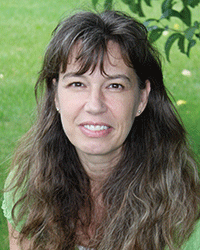 Rebecca Bigler
Rebecca Bigler
Professor of psychology
The University of Texas at Austin
My own career in psychological science developed during the same era that APS developed as the premiere organization for psychological scientists. I was working on my master’s thesis in developmental psychology at The Pennsylvania State University in 1988, the year that APS was founded. I had received my undergraduate degree from Oberlin College and another Oberlin alumna, Janet Taylor Spence, was elected as APS’s Founding President. I noted the election because Janet Spence had been given an honorary degree by Oberlin in 1985, and I had been in the audience. I was inspired by her career, especially her empirical research on gender roles.
I attended my first APS conference in 1991, the year that I received my doctorate under the mentorship of another exceptional scholar, Lynn Liben. That same year, I joined the department of psychology at the University of Texas at Austin and I became — to my amazement—a colleague of Dr. Spence. In the ensuing years, I studied factors that affect the formation of social stereotypes and prejudice, publishing a theoretical integration of that work in APS’s Current Directions in Psychological Science. I have appreciated the gender equity that characterizes APS’s leadership and was delighted to learn of the establishment of the Janet Taylor Spence Award in 2010. And this past spring, my own talented graduate student, Yamanda Wright, presented her master’s thesis research at APS’s 25th annual meeting in Washington, DC. I trust the organization will be a source of support and inspiration for her over the next 25 years.
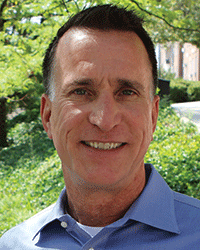 Jack J. Blanchard
Jack J. Blanchard
Professor and department chair of psychology
University of Maryland, College Park
APS’s 25 years overlap entirely with the start of my own career and in many ways I feel that we have grown up together. APS is an organization that somehow remains personal and relevant to me despite its phenomenal growth. APS’s Annual Conventions are always extraordinary opportunities to hear from top researchers from around the world; yet the meetings somehow continue to retain a feeling of intimacy where attendees have an opportunity for thoughtful discussions with presenters, and the excitement of discovery and learning are still very much a part of the experience. As a clinical scientist I have valued the advocacy and support that APS has provided in this domain, including its organizational partnership with the Society for a Science of Clinical Psychology, and most recently APS’s development of the new journal, Clinical Psychological Science. In serving on APS conference program committees, I learned of the deep commitment and passion that Alan Kraut and the APS staff have for supporting and advancing psychological science, as well as their sense of loyalty towards the members of APS. This is not a soulless organization focused on membership revenue, but rather a group of people who truly care about the community that they have created and nurtured. Despite APS’s enormous growth and success, it is an organization that has not lost sight of its roots and it remains fiercely committed to the same vision that led to its creation.
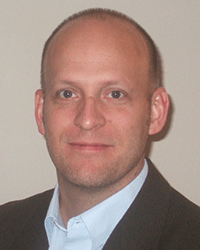 Kirby Deater-Deckard
Kirby Deater-Deckard
Professor of psychology and psychiatry
Virginia Polytechnic Institute & State University and Virginia Tech Carilion School of Medicine
I grew up with APS. Therefore, on this special occasion I cannot help but respond to the personal connection that I feel toward the organization. I remember with fondness my decision in graduate school to join APS in its infancy, at the encouragement of my PhD advisor and future APS President Sandra Scarr. Within just a few years APS was flourishing, and I began to realize that APS would be my intellectual home. My introduction to peer review was with Psychological Science, where I published my first paper when I was a PhD candidate. I was put through the ringer — thank you reviewers! That experience and everything since has taught me how seriously APS takes our science, and how important it is to disseminate rigorous research far and wide. Over the past two decades, APS publications have been the foundation for the material I use to continually educate myself and my students about the depth and breadth of our complex, interdisciplinary science. At the same time, APS initiatives have strengthened psychology’s connections to basic and applied science in many other disciplines. Congratulations APS and all its members. Take a minute to pat yourselves on the back by acknowledging the crucial role you play in the development of new researchers who are establishing their careers and identities as psychological scientists.
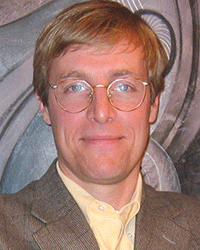 James J. Gross
James J. Gross
Professor of psychology
Stanford University
In August 1988, two things happened. One was of great public moment, namely the founding of the Association for Psychological Science. The other was of private moment only, namely my matriculation as a graduate student in the psychology department at the University of California, Berkeley. I’ve always suspected that this shared birthday helped lay the foundation for my career-long love of APS.
I came to psychology via philosophy, attracted by the prospect of answering the age-old question of how emotions might be regulated so as to maximize well-being. I wasn’t very well calibrated as to how long it might take to answer a question like this. I thought I’d be done in a year or two. Happily for me, I had the good fortune of working with an exceptionally patient and wise mentor, Robert Levenson. Rather than telling me I was a ridiculous fool, Bob helped me carve off a sliver of the project I had in mind, and gently encouraged me to simplify my five-factor experiments. Bob would go on to serve as President of APS, and, in 2013, win its inaugural lifetime mentorship award as partial repayment for all his suffering at my hands.
Although dangerously naive, one thing I wasn’t short on was enthusiasm for my newfound field. When I heard that a new society was forming that was focused on psychological science, I joined as a founding member. Since that time, I have enjoyed years of scientific fun and friendships nurtured by APS, marred only slightly by a career-stopping display of social incompetence on my part, in which I helpfully introduced Alan Kraut to Jane Steinberg, well after they were happily married. Now, a quarter century later, I’m still as fascinated as ever by emotion regulation. And I can’t believe my good fortune to have had the chance to launch a new society — the Society for Affective Science (society-for-affective-science.org) — with my friend and fellow APS fellow Lisa Barrett, who I first met at an APS meeting. The Society for Affective Science will have its first meeting in Washington, DC, April 24-26, 2014.
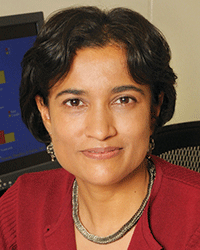 Suparna Rajaram
Suparna Rajaram
Professor of psychology
Stony Brook University
APS and I turned 25 more or less together. That is to say APS was born when I was in graduate school. I remember driving a beat up, graduate student car from Houston to Dallas where the APS Convention was held in 1990. It wasn’t just the Texas heat in June that scorched. There was palpable excitement about science and education at the Convention, a quality that has come to define APS. The journal Psychological Science was also established around the time I began my dissertation research — another time point I remembered years later when I served as the Journal’s associate editor.
Over these years, the growth of APS has been staggering. From about 5,000 members in 1989, APS now has about 25,000 members. How did this happen? Here is my first-person perspective. Professional societies tend to succeed when they choose a uniquely defined space, a focused and singular mission. APS has boldly defied this time-tested rule. APS embraces it all, does it all, and does it with flair. As a result, it serves a wide span of members. As a current APS Board member, I have become especially aware of the systematic historic steps taken to introduce the new journals, the education initiative, the student caucus, an international outreach, and the efforts to engage the National Institutes of health, Capitol Hill, and most recently the White House.
Then there is the prescience factor. The field of psychological science has undergone rapid changes since the time I received my PhD. Powerful new directions have emerged during this time — cognitive neuroscience, educational applications, the interaction between emotion and cognition, social cognition, to name a few related to my own research area of learning and memory. APS has successfully invented the recipe to showcase both the enduring questions and the emerging directions. So perhaps this is the secret of its success — APS moves forward with an uncanny mix of exuberance and wisdom.
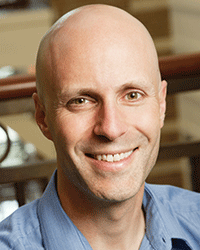 Daniel Simons
Daniel Simons
Professor of psychology
University of Illinois
I learned about APS while participating in an undergraduate summer research program at the University of Minnesota. I remember the palpable excitement among the graduate students about a new society that would focus on issues relevant to researchers rather than practitioners. At that stage of my career, I was not cognizant of the controversies resulting from the formation of a new society, but it seemed like a wise innovation — one I was happy to join. Over the past 25 years, APS has helped to change how other scientists and the public view psychology as a scientific discipline. The society has not only represented its members, but has also engaged the public by making psychology research accessible and understandable. Journals like Current Directions in Psychological Science and Psychological Science in the Public Interest have helped to convey consensus scientific opinion to a wider audience, providing essential tools for teachers, researchers, and policymakers.
Now, in the midst of a period of self-reflection in our field about research best practices, APS is again leading the way to improving the state of our science. New reporting requirements for its flagship empirical journal, Psychological Science, will help set the standards for acceptable research practice. APS is also experimenting with a new form of pre-registered replication at its premier theoretical journal, Perspectives on Psychological Science. Twenty-five years after its inception, APS continues to improve the state of psychological science. That willingness to lead the charge for innovation makes me as optimistic about the future of psychological science as I was at the start of my career 25 years ago.
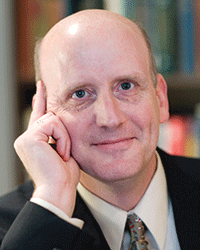 Daniel Willingham
Daniel Willingham
Professor of psychology
University of Virginia
Psychology has historically had an uneasy relationship with education. On the one hand, some of our best experimentalists — James, Skinner, Bruner — have made bold pronouncements about what psychology can do for teachers and students. On the other hand, these great figures have been the exception, and the more common response of experimentalists to the question: “How do psychological theories apply to school?” has been to back away slowly. We have been eager to stay in the lab, and to let educational psychologists worry about the classrooms.
But that response has changed markedly in the last 20 years. Experimental psychologists are more vigorously exploring the implications for classrooms of findings from the study of cognition, emotion, and social processes, among others. APS has been a significant part of that change.
From my perspective, membership in APS has truly been part of my identity as a scientist, most especially as a scientist seeking to bring findings from our field to education. The Association is so clear in what it stands for — scientific integrity, and advocacy for the value of science — that it makes my relationship to other fields that much clearer to me.
APS was organized when I was in graduate school. The need for a new organization representing psychological scientists was not completely clear to me at that time. I better understand the reasons now. Scientists need a home base, an organization that can represent the value of science without the qualifications that might derive from a dual mission. That identity makes us stronger as we reach out, both to applied fields and to other sciences.
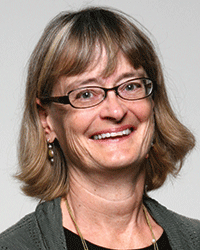 Jacqueline D. Woolley
Jacqueline D. Woolley
Professor and associate chair of psychology
The University of Texas at Austin
APS is a constant presence in my daily life. Being somewhat old-fashioned I still receive a paper copy of journals. I do this because, despite the fact that my chair insists I should go out and socialize during lunch, I have my ritual — Psych Science and brown bag — as often as possible. Often, a copy travels home with me, and I annoy my husband by regaling him with fascinating discoveries while he’s trying to work.
One of my fondest APS memories is meeting Judy DeLoache at the conference in San Diego in 1992. I was a new assistant professor, and at that time, people like Judy were rock stars (I had to restrain myself from asking for her autograph). Her appearance at my poster remains a vivid memory today, and she has continued to serve as a positive influence on my career over the past 20 years.
Last December I got an unexpected Christmas present in the mail — a certificate and a letter informing me that I had been elected an APS fellow. I was thrilled. What a wonderful unexpected honor. I’m proud to have been a student affiliate when APS began 25 years ago and am especially proud to be a fellow now. Happy anniversary!





APS regularly opens certain online articles for discussion on our website. Effective February 2021, you must be a logged-in APS member to post comments. By posting a comment, you agree to our Community Guidelines and the display of your profile information, including your name and affiliation. Any opinions, findings, conclusions, or recommendations present in article comments are those of the writers and do not necessarily reflect the views of APS or the article’s author. For more information, please see our Community Guidelines.
Please login with your APS account to comment.